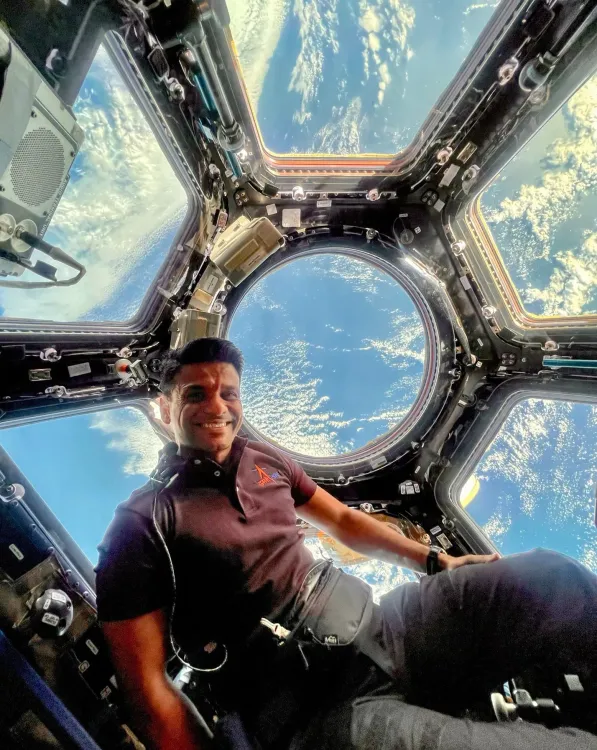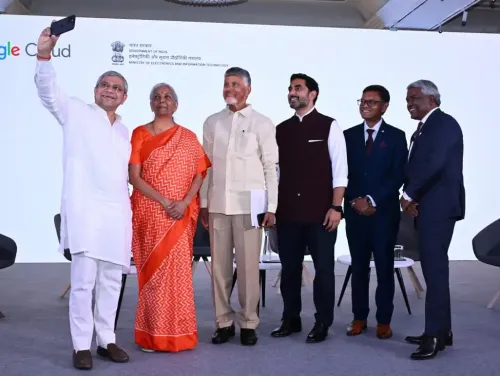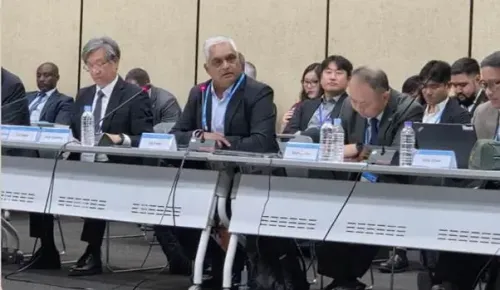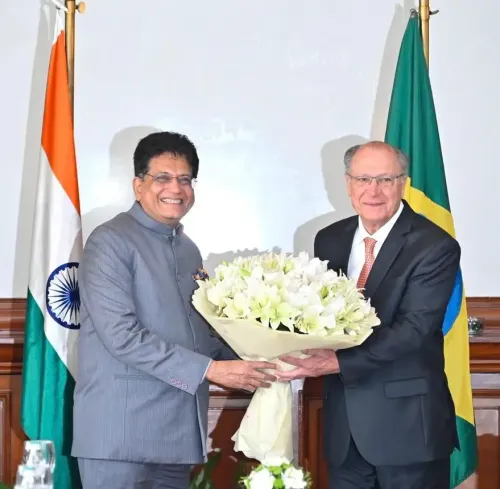What Experiments is Shubhanshu Shukla Conducting with Green Gram and Fenugreek Seeds in Space?

Synopsis
Key Takeaways
- Shubhanshu Shukla is the first Indian astronaut on the ISS.
- The experiment focuses on sprouting green gram and fenugreek seeds.
- The findings may lead to sustainable food production solutions in space.
- This research is a collaboration between ISRO, DBT, and NASA.
- Insights gained could benefit agricultural practices on Earth.
New Delhi, July 9 (NationPress) Indian astronaut Shubhanshu Shukla, who is currently aboard the International Space Station as part of the Axiom Space Mission 4, has been experimenting with sprouting seeds such as green gram and fenugreek in the orbital laboratory, according to NASA.
Shukla holds the distinction of being the first Indian aboard the ISS and the second astronaut from India, after Rakesh Sharma, to venture into space.
During his time in space, Shukla is carrying out a series of experiments created through a partnership involving the Indian Space Research Organization (ISRO), the Department of Biotechnology (DBT), and NASA.
The project, titled Sprouting Salad Seeds in Space (SPROUTS), focuses on sprouting greengram and fenugreek seeds—staples in Indian cuisine—in order to evaluate their growth, nutritional value, hormonal and genetic responses, as well as microbial content.
As ensuring a sufficient food supply for long-duration space missions is both expensive and impractical, findings from the SPROUTS experiment might lead to sustainable food production solutions in space. This research aims to enable astronauts to cultivate plants that can contribute to their diet and overall health.
NASA emphasized, "Plant-based food production systems can significantly contribute to the long-term objectives of human space exploration. The sprouted seeds can deliver a highly nutritious option, offering more nutritional benefits per unit mass compared to fully matured plants."
Moreover, "This study also lays the foundation for future research to develop salad crops tailored for India, ensuring an efficient and sustainable food source for prolonged missions," which signifies a vital step towards addressing the specific dietary requirements of Indian astronauts, as noted by NASA.
The research aims to uncover how the unique conditions of space affect the sprouting rate (germination), nutritional profile, and the behavior of phytohormones during the sprouting process.
Insights gained from sprouting in space might also advance controlled environment agriculture, enhancing the nutritional quality of food produced under challenging terrestrial conditions on Earth, according to the US space agency.
Hailing from Lucknow, Shukla is engaged in a 14-day scientific mission aboard the ISS as part of the Axiom-4 expedition, alongside three other astronauts from the United States, Poland, and Hungary.









